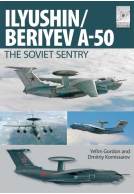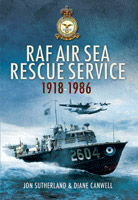Camel Combat Ace (ePub)
The Great War Flying Career of Edwin Swale CBE OBE DFC*
Imprint: Pen & Sword Aviation
File Size: 3.9 MB (.epub)
Pages: 100
Illustrations: 56
ISBN: 9781473866867
Published: 8th March 2017
| Other formats available - Buy the Hardback and get the eBook for free! | Price |
|---|---|
| Camel Combat Ace Hardback Add to Basket | £16.99 |
This book follows the First World War career of Captain (later wing commander) Edwin Swale, CBE DFC and bar, who served with 210 Squadron RAF, piloting Sopwith Camel scouts between March and October 1918. During this timeframe, he destroyed seventeen enemy aircraft, the majority being the formidable Fokker DV11. He undertook a series of perilous operations, including patrols, bombing and strafing missions and bomber escorts.
After the cessation of hostilities, he continued his flying career by piloting gliders over his native Derbyshire. He rejoined the RAF during the Second World War and ended the conflict as an intelligence officer in charge of Ultra operations with the 2nd TAF. His son Duncan also served in the RAF during the Second World War, flying low-level intruder operations in de Havilland Mosquitoes and earning a DFC and a US DFC. Swale also gave noted service to his native Chesterfield as a councillor, alderman, mayor and JP.
This is his story, told in full and thrilling detail.
From personal diaries and logbooks, Barry Marsden has produced a compelling account of Edwin Swale’s life which is rich in first-hand detail. This is the story of one man’s extraordinary achievements and it stands as a fitting tribute to the airmen of the Great War who continue to this day to inspire us all, especially readers of BFA.
Biggles Flies Again, Winter 202, Vol. 5, No 11
As featured in
Stand To! Western Front Assc No.111
As featured in
Ilkley Gazette
This is the extraordinary story of a young man from a well to do middle class English family who enlisted in the Royal Naval Air Service (soon to be the Royal Air Force), when he turned the tender age of 17. Arriving in France in March, 1918, Swale shot down seventeen enemy aircraft, mostly the dreaded Fokker VII, one of Germany's ablest aircraft. Barry Marsden uses Swale"s letters, diaries and official reports to ably reconstruct an incredible eight month tour of duty on the Western Front which he survived intact.
The Past in Review, David Lee Poremba
During the Second World War, Edwin Swale returned to uniform and served as an intelligence officer, eventually working with the Ultra and Enigma encoding systems. And to prove that flying can get into the blood, Swale's son saw combat flying the de Haviland Mosquitoe, earning DFCs form both England and the United States.
This is an excellent book for those interested in the history of the World Wars.
At 100 pages, Marsden's "Camel Combat Ace" is a relatively short read, full of action and an easy choice for aviation fans. It comes in a handy 6x9 hardcover format, with well spaced lines of an easily read, medium sized font. It is highly recommended.
Indy Squadron Dispatch
As featured in
Keighley News
The book is complimented by fitting photographs showing the family business, the different aeroplanes he flew, and confronted, his brother Duncan who was killed, as well as later family photos. What adds to the book is the personal nature of its structure and text, ensuring that you obtain a real feel if Edwin Swale's whole life.
Jon Sandison, Freelance
Edwin went onto be elected the Mayer of Chesterfield, and have a long period of Municipal service. The book notes that Edwin was a 'noted son of Chesterfield'. This book is a fitting tribute to him.
Well-written account of the flying career of Wing Commander Swale, based on diaries and family documents. The Great War saw some fighter pilots achieving more than 80 kills, but that was a result of the practice of flying until the pilot himself became a victim, and where many kills were of much inferior aircraft. In the final year of conflict, 17 kills against the formidable Fokker VII was a great achievement. Highly Recommended.
Firetrench
Read the full review here.
About Barry M. Marsden
Barry M. Marsden is an esteemed author and historian. Previous publications released include Portraits of Heroes: Derbyshire Fighter Pilots in the Second World War (2011, Amberley Publishing), Tracks and Trackless: Chesterfield's Trams and Trolleybuses (2012, Amberley Publishing) and Prehistoric Pathfinders: Pioneers of English Archaeology (2014, Fonthill Media). He lives in Eldwick, West Yorkshire.















